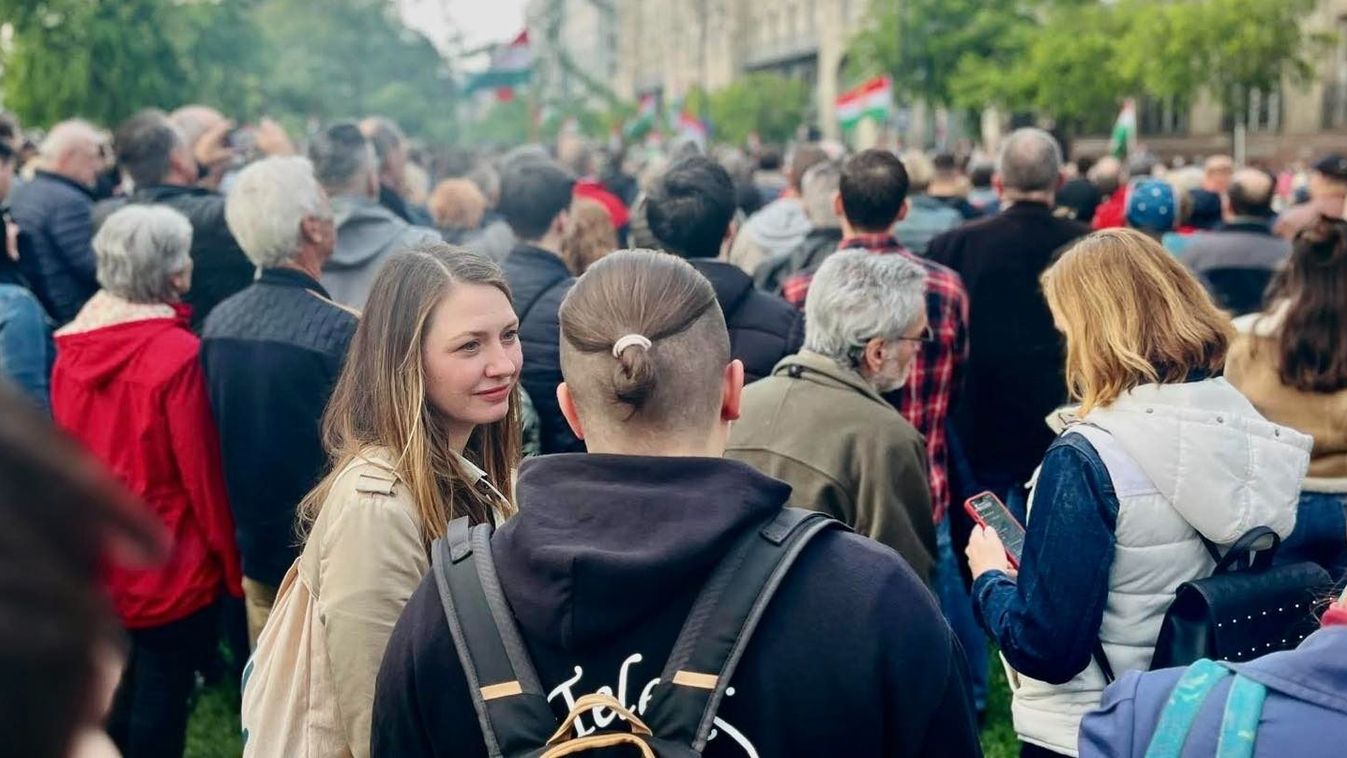„Highly respected Professor Katalin Dávid,
Through the usual theatricals that are so characteristic of Hungarian politics, I recently became acquainted with a piece of writing that at once bears the title and generic definition: »Memorandum«. It is attributed to you.
It is based on the assumption that the memorandum was also written for me that I would like to express my thanks.
Thank you for regarding this issue and the issue's proprietor (the government) as being worthy of your putting pen to paper. This is exceptional these days, as intellectuals usually use the public tone of general contempt and a comportment of being above such things.
Your kind gesture triggered a host of reflections in me. I feel that your writing is the first to avoid the pub counter of cheap political pushing and shoving that is practically unavoidable these days.
We could ask why it isn't the Minister responsible for cultural affairs who puts pen to paper in reply, but the decision on the memorial to the victims of the German occupation, which is the subject of your writing, was the decision of the Government, which I also supported. In addition, it is an honour to have the opportunity to write to you and here, finally, is a worthy occasion for me to tell you what I think about this complicated historical, moral and political patchwork.
My courage does not extend to iconographic comments, and not even the two-time two-thirds majority can help that. My courage extends merely to a comment of a political nature regarding the identity of the military machine that occupied us. But this immediately drags us into the depths of a pivotal question; who were these invaders: Nazis or Germans?
In my view, which I admit is primarily based on constitutional law, it was the Germans, who at the time happened to be living their lives in a country organised according to the Nazi state structure. Differentiating between the two and assessing the implications is the business of the German people and less so that of Hungarian commentators who otherwise acknowledge German national virtues and are usually sympathetic towards the failings of others. This perhaps explains why we did not regard the portrayal of the imperial eagle as cause for concern.
As far as the spirit behind the memorial is concerned, it is perhaps not unreasonable to mention the arguments in favour of including the angel.
It is striking how quickly the assumption that the angel is analogous with Hungary has gained ground. I see this as a sign of the times. A sign of a time in which political-combative interpretations are more attractive that those of an intellectual-spiritual nature.
I, for instance, see in the angel the innocent victims and not some kind of innocent state, because an innocent state or country, including our own, seems like a natural and conceptual absurdity. Since with regard to states it is not innocent or guilty, but rather the dimensions of public and international legal responsibility that are valid.
Creating a memorial to hundreds of thousands of innocent victims is not only right, but it is also an obligation of a moral nature. I have also heard arguments that support portraying the victims using a different symbolism in the hope of there being less debate concerning interpretation.
I regard the artist's decision to use an angel as estimable, because it provides the portrayal of the destructive evil with the extra power that other solutions could not provide. I am thinking of anti-Christian sentiment. The invading German empire of the time swept away the two-thousand-year European Christian virtues and the Christian expectations and teachings with regard to politics and power, and so the victims, whether orthodox, Christian or without faith, became the victims of a dictatorship that embodied an anti-Christian school of thought. To successfully grasp this very complicated historical and spiritual structure within a sculpture composition commemorating the victims is a true creative feat, I think.
The question arises, is it a virtue or a fault if a work of art allows for such a wide range of interpretation on the part of the observer. I don't know the correct answer from a philosophical or history or art perspective. But I do know that didactic historical works of art, which were the norm in my youth, have more of a depressive impression on me.
In summary, what I would like to explain to you is simply that, from a moral perspective and with regard to the historical content of its system of allegories, this work of art is accurate and flawless.
Although it is not the subject of the monument that pays tribute to the victims, in view of the debate that has come about I cannot refrain from also writing with regard to the relationships between the German occupation and the responsibility of the Hungarian state.
The German occupation is a fact. It is also a fact that Hungary was forced to submit to direct German control. Accordingly, it can hardly be disputed that Germany bears responsibility for what happened in Hungary after 19 March 1944. Exactly as this fact is also set down according to German court decisions, and as our Fundamental Law also determines.
Nevertheless, we must also raise the issue of the responsibility of the Hungarian political and state leadership of the time. But can the leaders of an occupied country be held responsible at all, and if so to what extent? It is my opinion that they can be held responsible. In my view the charge of collaboration and the related responsibility holds true in this case.
Hungary's political leaders — whatever reason or explanation they may have had — did not initiate any form of resistance against the coun try's occupiers; they did not launch national defence or national rescue missions, they did not attempt to protect the freedom and assets of the country's citizens and they didn't even have the strength to set up a government in exile. Accordingly, they must bear the responsibility of having collaborated before both the earthly and godly tribunal. This responsibility is not lessened by the well-known fact that there was a wide and varied range of collaborators in Europe at the time.
And so we have finally arrived at the most important question: what should we do with this whole issue; what should we do about the issue of cohabitation. And what should our generation especially do, which was born later and in its politics is committed to Christian values, the national self-esteem and to a national pride that is based on correct self-knowledge.
In my view, what we Hungarians could have done, we have done. We have apologised, although we know that collaboration with the perpetrators of genocide cannot be forgiven. We have made reparations, although we know full well that what has happened cannot be atoned for. But at the same time we cannot bear a responsibility that is not ours to bear. And for this reason we must also state clearly that without the German occupation there would have been no deportations, no rail wagons and no hundreds and thousands of innocent lives lost. Without the acceptance of these facts it is difficult to imagine a sincere cohabitation based on trust in the future. And our generation became followers of radical, anti-communist politics because we had had enough of an insincere life built on a lack of trust.
Thank you for having given me the opportunity to write to you about all this.
29 April 2014, Budapest
With my deepest respects,
Viktor Orbán
Post Scriptum: I have also sent copies of this letter to Zsuzsanna Hegedűs, Katalin Keserű and Zsuzsanna Erdélyi, because although my letter to you is personal, but is not of a private nature. Feel free to bring it to the attention of others at your own discretion.”




















